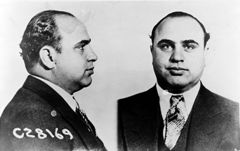The Sources of Anti-Gay Sentiment in Uganda
American politicians and journalists have sharply criticized Uganda’s apparent hostility toward gay men and lesbians. When in February Uganda’s President Yoweri Museveni signed into law a bill imposing harsh criminal penalties for homosexual acts, U.S. Secretary of State John Kerry criticized the Ugandan law as a violation of international human rights. When a tabloid in Kampala, the nation’s largest city, published a list of “Uganda’s 200 Top Gays,” American newspapers reported that this mass “outing” led those on the list to fear for their lives and to seek desperately to flee the country.
In response to this criticism, the Ugandan government characterized the political comments and journalistic reports as disturbingly arrogant. Once again, the U.S. seemed to be trying to control Ugandan lawmaking and public opinion, the government said. Museveni himself insisted “outsiders” should leave his nation alone and vowed he would not give in. “If the West does not want to work with us because of homosexuals,” Museveni said, “then we have enough space to ourselves here.”
Is the dispute simply a matter of American support for gay rights colliding with Ugandan homophobia? As is usually the case in an international dispute of this sort, the controversy involves more than the purported enlightenment of the West on the one hand and the narrow-mindedness in the developing world on the other. There is ample evidence that American evangelical Christians heavily influenced Uganda’s political and religious leaders, who as a result of this influence turned on the nation’s gay men and lesbians.

 Some of the very earliest photographs from the late 1830s are of alleged and/or convicted criminals, and law enforcement officials used photographs of criminals in Belgium as early as the 1840s to track down wrong-doers. In Paris, a clerk in the Prefecture of Police Office originated the “mug shot” as we usually imagine it — two shots side by side, with one shot being a frontal shot and the other being a profile.
Some of the very earliest photographs from the late 1830s are of alleged and/or convicted criminals, and law enforcement officials used photographs of criminals in Belgium as early as the 1840s to track down wrong-doers. In Paris, a clerk in the Prefecture of Police Office originated the “mug shot” as we usually imagine it — two shots side by side, with one shot being a frontal shot and the other being a profile.